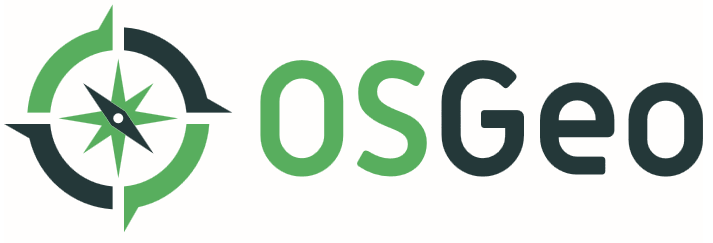Difference between revisions of "Google Code In 2017"
Jump to navigation
Jump to search
| Line 32: | Line 32: | ||
= Administrators = | = Administrators = | ||
| − | * [[Margherita Di Leo]] <libravatar email="diregola@gmail.com"/> (IRC | + | * [[Margherita Di Leo]] <libravatar email="diregola@gmail.com"/> (IRC nickname: "madi") |
| − | * [[Jeff McKenna]] <libravatar email="jmckenna@gatewaygeomatics.com"/> (IRC | + | * [[Jeff McKenna]] <libravatar email="jmckenna@gatewaygeomatics.com"/> (IRC nickname: "jmckenna") |
* [[User:Masterflorin|Florin-Daniel Cioloboc]] <libravatar email="cioloboc.florin@gmail.com"/> | * [[User:Masterflorin|Florin-Daniel Cioloboc]] <libravatar email="cioloboc.florin@gmail.com"/> | ||
* [[Helmut Kudrnovsky]] | * [[Helmut Kudrnovsky]] | ||
Revision as of 05:59, 5 October 2017
Central page for administering OSGeo participation in Google Code In 2017
Background
- Google Code In program has been officially announced
- Google Code In main page
- How Google Code-in Works
- Examples of Google Code-in Tasks
- Logo, flyer and presentation
- Roles and responsibilities of Students, Mentors and Admins
Timeline
- Full timeline
- Oct 9 2017: Open source organizations can apply to be mentoring organizations (we should have mentors and tasks by then)
- Nov 28 2017: Contest opens for entries by student participants
- Jan 15 2018: Deadline for students to claim new tasks
- Jan 17 2018: All student work must be submitted; contest ends
- Jan 18 2018: Mentoring organizations complete all evaluations of students’ work
- Jan 31 2018: Grand Prize Winners and Finalists announced
- June (exact dates TBD): Grand Prize Winner’s Trip
Communication
- IRC-channel: #osgeo-gsoc channel on freenode.net
- how to connect: choose your favorite IRC client, or go directly through browser with webchat
Administrators
- Margherita Di Leo <libravatar email="diregola@gmail.com"/> (IRC nickname: "madi")
- Jeff McKenna <libravatar email="jmckenna@gatewaygeomatics.com"/> (IRC nickname: "jmckenna")
- Florin-Daniel Cioloboc <libravatar email="cioloboc.florin@gmail.com"/>
- Helmut Kudrnovsky
Interested mentors / volunteers
Willing mentors must write to gsoc-admin(at)osgeo.org and will be sent a form to fill in.
Kickoff (virtual) meeting
- 2017-09-25 at 20.00 UTC
- On IRC in the #osgeo-gsoc channel on irc.freenode.net (connect directly in your browser via webchat)
- agenda:
- discuss ideas for tasks for the students
- plan to share mentor invites to all OSGeo projects
- Collect questions to discuss with other mentor orgs at mentor summit
Open questions
- The how it works page doesn't mention how the word of this gets out to students, or does Google handle that?? How is promotion to students handled?? <libravatar email="jmckenna@gatewaygeomatics.com"/>
- Discuss the opportunity to create "virtual environments" for the students to play with, and eventually come up with a patch? For example, for tasks that would otherwise require access to sensitive systems, e.g. SAC, web pages, etc.. <libravatar email="diregola@gmail.com"/>
- It is not clear to me if it's possible to use more than one bug tracker or we must use the osgeo tracker for all the projects <libravatar email="diregola@gmail.com"/>
- Is it necessary for the students to pick from different "types" of tasks or they can decide to complete only one type? <libravatar email="diregola@gmail.com"/>
- When is the deadline to prepare the tasks: Oct 9th (Open source organizations can apply to be mentoring organizations) or Nov 28th (Contest opens for entries by student participants)? <libravatar email="diregola@gmail.com"/>
- What is the minimum number of tasks we need to get ready by the deadline? <libravatar email="diregola@gmail.com"/>
- How many mentors do other organizations have (to be on the safe side and not underestimate the work load)? <libravatar email="diregola@gmail.com"/>
Insights from other orgs
Tim Abbot from the Zulip project says:
The Zulip project did GCI for the first time last year, and we learned basically everything we needed to know at the mentor summit GCI session. If you're spending time on preparation in advance of that, I'd encourage you to focus on a few things: * Recruiting volunteers to help the students; we had over 30 people organized in 4-hour shifts to provide continuous coverage. * Writing really good developer onboarding documentation, and testing it on inexperienced programmers. * Creating a few really polished starter tasks (e.g. we had one that was basically "figure out how to do manual and automatic testing in Zulip, including writing a simple unit test" * Planning out some larger categories of tasks (e.g. where you want 15 similar things done) that you can write really good guides for.

